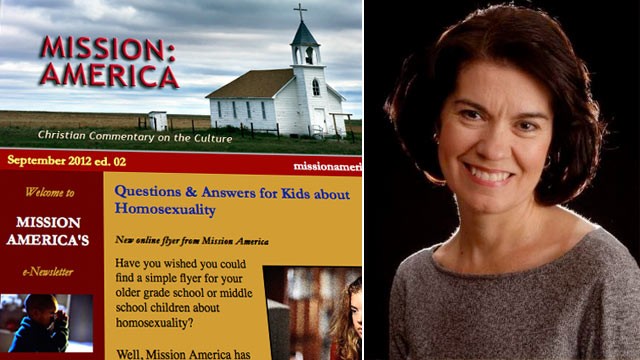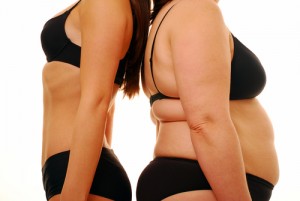Some days it’s not easy being a Christian soldier. When my comrades talk in a way that makes sense, it’s all well and good. But when they say stupid things, such as being gay is bad — like bullying and overeating — my faith is tested.
Mood music:
[spotify:track:55jSlIKD8CoP3uTIXlJdGa]
Fortunately for me, I learned a long time ago not to base my faith on the social politics of mere mortals, including those with leadership positions in the Catholic Church and elsewhere. If a priest says something I find hateful and out of line or is run out of town for spending church funds on porn, I remember that we all fail every day, and that the most important thing is one’s relationship with Christ and Christ alone.
Today’s tirade comes after seeing a brochure from Mission: America’s Linda Harvey that lumps being gay with being a bully or a glutton. Harvey’s new guide on how to talk to kids about homosexuality states that, among other things, “it’s not right to tell someone that being homosexual is okay. The person may be feeling sad because of being bullied, but never try to make him or her feel better by saying ‘gay’ is okay.”
She builds on this ridiculousness by comparing homosexuality to overeating: “Kids who are overweight are sometimes bullied, too. And we might want to make that person feel better. But it would be a mistake to say that overeating is a good thing, right?”
One of the major tenets of Christianity I try — and often fail — to observe is to not judge others. “Do not judge, and you will not be judged. Do not condemn, and you will not be condemned. Forgive, and you will be forgiven,” says the Bible (Luke 6:37).
And yet, when it comes to the issue of homosexuality, all church leaders ever seem to do is pass judgement. They tell us that being gay is a lifestyle choice. They tell us that being gay is among the worst of all sins. I have several relatives who are gay, and I can tell you this: Not one of them woke up one morning and decided they’d be gay because it seemed like a cool lifestyle choice. Several gay friends and family fought their homosexuality, turning to drugs and suicide attempts. They eventually realized they are good people who have much to offer their fellow human beings. They pay their taxes, love their relatives, friends and community, and do God’s work every day in a variety of ways:
They help feed the poor.
They teach children to be kind to each other.
They take on jobs with massive responsibility and rise to the occasion.
They do things Jesus would approve of. They also do things Jesus would frown upon. But don’t we all? And Jesus still loves us all, no matter our failings.
I hope Harvey learns to stop judging people she doesn’t know. Telling children to judge others is un-Christian and contrary to what Harvey says she believes. Telling children it’s bad to be gay, even when it’s far beyond the individual’s control, is irresponsible. Telling them it’s OK to dislike a person because they aren’t like you is telling them it’s OK to judge people without having all the facts.
That’s the recipe from which a lot of bullying rises up.



